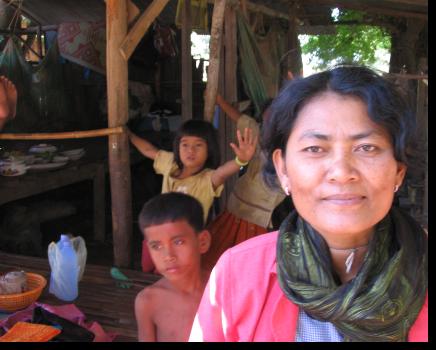 |
|
CHANCE SYNCHRONICITY & MIND-WRITING:
Write About a Foreign Environment

Learning to Embrace Guanxi: On Living Communally in China
Elizabeth Lindsey Rogers on a Two-Year Teaching Fellowship in Taigu
Before Taigu, people warned me: China was a fiercely social country. After I arrived, I rarely went anywhere unaccompanied. I was ushered into crowded noodle stalls and into corner stores stuffed with plum juice, chicken feet, and hot-water thermoses. I often needed help at the post office, with its hundreds of strict regulations and wisp-thin envelopes you sealed with a depressor and paste. Students took me to the White Pagoda and the courtyard of H. H. Kung, the only historical sites in town that hadn’t been destroyed during the Cultural Revolution. Eventually, I’d be invited into my Chinese colleagues’ small apartments, where several generations of the family often lived together. I’d be generously served five kinds of dumplings, the bowl full again before I had the chance to set down my chopsticks.
In the unheated, Soviet-feeling building where I taught university English, I waited in line with other women to use toilets without doors or stalls. At first, I tried to turn my face away from the others, demurring. But there was no use trying to hide anything about our bodies here: whose stomach was upset, or who was crying, or who was on her period that day. We saw it all. We offered stacks of tissues when someone had run out of their own supply.
I lived in a tiny brick house, the tiles on my roof painted with evil eyes to ward off badness. I’d often wake to the arguing of an unknown college couple, shouting their insults right in front of my window, just a few feet away from where I had been sleeping. I’d stumble into the kitchen, startled to find a stranger outside the back door, shaking my (was it mine?) jujube tree and picking up the fruits from the ground.
Like most teachers at the agricultural university, I lived on campus, and I wasn’t hard to find. My thoughtful students showed up on my front stoop, bearing jars of weird, floating grains and fermented vegetables sent by their grandmothers. “If you eat this for six days,” they’d say, “you will be well.”
The word was out: I was sick a lot. It was my first time living abroad, and the new microbes were hard on my body. In Taigu, there was delicious street food as well as contaminated cooking oil, air, and groundwater. Shanxi province, even by Chinese standards, was an environmental disaster. The coal plants were next to the grain fields, pink and green smoke rising out of the stacks. On a good day, you could see the mountains that surrounded campus. Most of the time, they were hidden by pollution. Particulate matter caked the windowsills in my house.
People were curious about me. I was asked daily by strangers in the market square what country I was from and why I had come to Shanxi province—sort of the West Virginia of China, except that it was on the edge of the desert—as opposed to the more glamorous Shanghai or Beijing. They also asked how old I was, how much money I made teaching at the university, if I’d eaten that day yet, and, if so, what had I eaten? And why was I “a little bit fat,” they said, but not as fat as some Americans? How often did I need to color and perm my hair? (It was reddish and was curly on its own, I said.) Was that American living in the other half of my duplex my boyfriend? (He was not.) Well, did I at least have a boyfriend in the States? (Sarah, my girlfriend from college, was teaching down in Indonesia, but I didn’t explain her, for obvious reasons.) And, occasionally, from students and younger friends: What did I think of the movie American Pie Presents: Beta House? Was it an accurate portrayal of American university life?
Eventually, I borrowed my friend Zhao Xin’s laptop so I could watch the pirated version with Chinese subtitles. I was horrified. One of the thankfully forgotten sequels of the original American Pie, it made me squeamish during scenes of a fraternity’s hazing ritual, something about attaching a bucket of beer to some guy’s genitalia. There was also one exaggerated fire-hose moment, a sorority sister experiencing female ejaculation for the first time. As for the question of whether this resembled university life in the United States, I told them, in all honesty, I wasn’t sure. I had just graduated from a small, studious college in the Midwest. Despite its sex-positive atmosphere, things were, all in all, pretty quiet there, with some nerdily themed parties but no Greek life at all.
In truth, I’d had plenty of sex in college, but that had to be my own business. More specifically, I didn’t reveal my lesbian identity to anyone in China, at least at first. I responded to boyfriend questions with a simple “No.” I didn’t know what the consequences of coming out might be, and I couldn’t take the risk. Keeping this a secret, I’d come to realize later, was part of what made me feel so isolated that first year in China, even though other people surrounded me. Read more...
Writing a Novel is Just Like Searching for Ecstasy in Cambodia
Patrick Hoffman on Doing Deep Research in the Cardamom Mountains
One morning a few years ago I was in bed in Upstate New York texting with a private investigator friend of mine. I’d just sold my first novel as part of a two-book deal, a surprise for both of us. Six months earlier we’d been co-workers at the San Francisco Public Defenders Office. He responded to my good news with a strange question: “Did you know that ecstasy comes from a tree in Cambodia?”
I stopped texting, and called him right then. “Yeah,” he said. “They get safrole oil from a tree in the jungle. Distill it, do some chemistry to it—you end up with Molly. You could write a book about that.”
I wasn’t searching for ideas at the time. I was already in the middle of writing a second novel. It had nothing to do with MDMA or Cambodia. But I found myself thinking about what he said now and again.
A few weeks later, I drove down to New York to meet my editor for the first time. We ate lunch in what felt like a very glamorous Manhattan restaurant. Midway through the meal, he asked if I had any ideas for the second book.
“I’ve been working on this thing that takes place in a prison in California,” I said. “It’s about this character who gets caught between these two rival factions of the Aryan Brotherhood and . . . ”
A look passed over his face; it made me trail off mid-sentence. It wasn’t the kind of look you want to see when you are talking about a new novel. It was just a micro-gesture, but it showed concern. I wanted to explain that I didn’t set out to write about the Aryan Brotherhood. My only thought at the outset had been to set the book in prison. I couldn’t help it if my main character happened to fall in with the wrong crowd.
“Do you have any other ideas?” He asked.
I licked my lips. “Well–” I said, leaning forward across the table… “a friend just told me that the drug Molly comes from a tree in Cambodia. I was thinking of doing a story about the people who harvest the chemical over there, and maybe, track the people who move the drugs from Southeast Asia, to the US—maybe some Israelis, or something—and then you have the people in San Francisco that sell it.” The words came out of my mouth easily. A mixture of thought and improvisation.
The editor’s face softened. He said, “You can write whatever you want. I’m not going to insist on anything. But I think you should do the second one.” He pointed at me, nodded his head. I found myself nodding, too. Read More...

I found no grail. But I did discover the modern tradition. Because modernity is not a poetic school but a lineage, a family dispersed over several continents and which for two centuries has survived many sudden changes and misfortunes: public indifference, isolation, and tribunals in the name of religious, political, academic and sexual orthodoxy. Being a tradition and not a doctrine, it has been able to persist and to change at the same time. This is also why it is so diverse. Each poetic adventure is distinct, and each poet has sown a different plant in the miraculous forest of speaking trees. Yet if the poems are different and each path distinct, what is it that unites these poets? Not an aesthetic but a search.
– Octavio Paz
![]()
